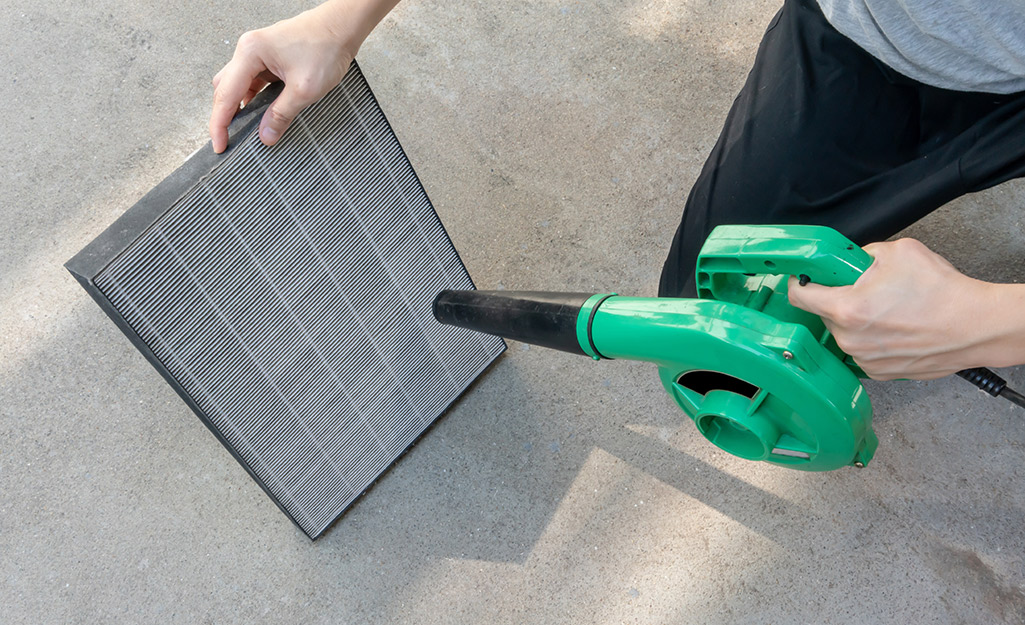As homeowners and business owners, it’s easy to overlook the finer details of your HVAC system, but one aspect that should never be ignored is the filter. What happens if you run HVAC without filter? The implications are significant and can lead to various problems that you’d want to avoid.

The Vital Role of HVAC Filters
To fully understand why running your HVAC without a filter is a bad idea, we first need to comprehend the role of HVAC filters in your system.
Importance of Air Quality
Filters play a crucial role in maintaining indoor air quality. They trap dust, dirt, and other airborne particles, preventing them from circulating through the air you breathe. Running an HVAC system without a filter means all these particles will enter your living spaces, affecting your air quality.
This could especially be problematic if you or anyone in your household suffers from allergies, asthma, or other respiratory issues. Poor air quality can exacerbate these conditions, leading to significant health concerns.
Protecting Your HVAC System
Your HVAC system itself relies heavily on a filter to maintain its efficiency and longevity. The filter helps keep internal components clean by preventing dirt and debris from accumulating inside your system. Running an HVAC system without a filter allows these particles to settle inside, which can lead to:
- Increased wear and tear on internal components.
- Decreased efficiency and higher energy bills.
- Potential system breakdowns requiring costly repairs.
How Running without a Filter Affects Homeowners
Increased Dust and Dirt
Without a filter, your home’s dust and dirt levels can rise dramatically. You’ll find yourself cleaning more often, as these particles settle on furniture, floors, and other surfaces.
Higher Energy Bills
An HVAC system without a filter works harder to circulate air, which can lead to increased energy consumption and higher bills.
Health Concerns
As mentioned, the presence of more airborne particles can have direct health impacts. Increased exposure to dust and allergens can trigger or worsen respiratory conditions.
Implications for Business Owners
Impact on Employee Health
For business owners, running HVAC systems without filters can affect your employees’ health. Poor air quality can lead to increased illnesses, reducing overall productivity and increasing absenteeism.
Maintenance Costs
Commercial HVAC systems are complex and expensive. Running them without a filter can cause significant damage, leading to higher maintenance costs that could have been prevented with a properly maintained filter.
Customer Perception
If customers notice a dusty environment or experience allergic reactions in your business space, it can negatively impact their perception of your business. Maintaining a clean and healthy environment is crucial for customer satisfaction.
Steps to Prevent Problems
Regular Filter Replacement
The best way to ensure your HVAC system runs efficiently and maintains good air quality is by regularly replacing your filters. For most systems, this means changing the filter every 1-3 months.
Professional Maintenance
Regular professional maintenance is also crucial. Technicians can clean internal components and check for any issues, ensuring your system is in top shape.
Choosing the Right Filter
MERV Ratings
Filters are rated by Minimum Efficiency Reporting Value (MERV). Higher MERV ratings indicate better filtration but can also restrict airflow, so choose a filter that balances filtration efficiency with your system’s airflow needs.
Filter Types
Various filter types are available, including fiberglass, pleated, and electrostatic filters. Each has its advantages, so consider your specific needs when selecting a filter.
Conclusion
In summary, running your HVAC system without a filter can lead to numerous problems, including poor air quality, health issues, increased maintenance costs, and higher energy bills. Both homeowners and business owners should prioritize regular filter maintenance to e nsure their HVAC systems run efficiently and maintain a healthy indoor environment.
nsure their HVAC systems run efficiently and maintain a healthy indoor environment.
For more detailed guidance on maintaining your HVAC system, consider visiting resources like How to Change HVAC Air Filter.
FAQ Section
Is it harmful to run the HVAC without a filter?
Yes, running the HVAC without a filter can negatively impact indoor air quality, increase energy bills, and cause damage to the HVAC system.
How often should I replace my HVAC filter?
Typically, HVAC filters should be replaced every 1-3 months. However, this can vary depending on the filter type and usage.
What type of filter should I use?
The type of filter depends on your specific needs. Consider factors such as MERV rating, filter type, and your HVAC system’s specifications when choosing a filter.